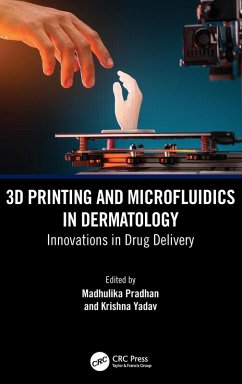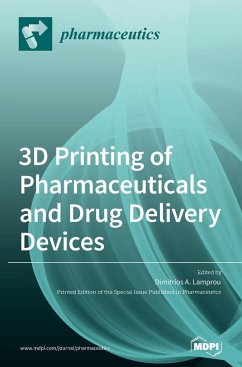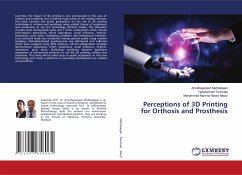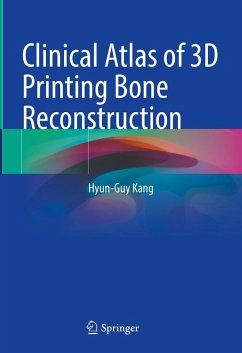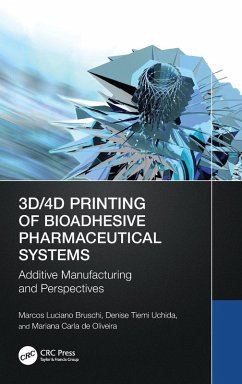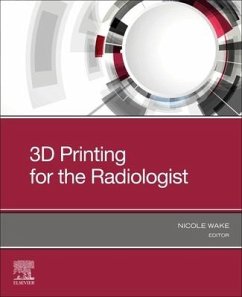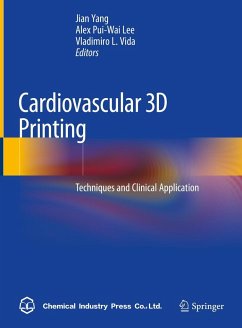
3D Printing in Healthcare
Novel Applications
Herausgeber: Malviya, Rishabha; Sharma, Rishav
Versandkostenfrei!
Versandfertig in über 4 Wochen
174,99 €
inkl. MwSt.
Weitere Ausgaben:

PAYBACK Punkte
87 °P sammeln!
The main goal of this book is to explore the application of 3D printing in medicine and healthcare that could revolutionize drug development and medical equipment production and also improve supply chains, pharmaceuticals, and healthcare. In the fields of medicine, pharmaceuticals, surgical planning, and personalized medical treatment, the novel emergence of 3D printing technology has opened a wide range of potential applications. With personalized solutions that were previously impossible, 3D printing has opened up novel possibilities in patient care, from developing unique medications to man...
The main goal of this book is to explore the application of 3D printing in medicine and healthcare that could revolutionize drug development and medical equipment production and also improve supply chains, pharmaceuticals, and healthcare. In the fields of medicine, pharmaceuticals, surgical planning, and personalized medical treatment, the novel emergence of 3D printing technology has opened a wide range of potential applications. With personalized solutions that were previously impossible, 3D printing has opened up novel possibilities in patient care, from developing unique medications to manufacturing prosthetics and implants that are particular to each patient. The 14 chapters in this volume present the reader with an array of subjects including: * the evolution and background of 3D printing, charting its extraordinary path from its inauspicious origins to its current significance in the field of healthcare. Also discussed are the many kinds of 3D printers that are employed in additive manufacturing, as well as how they are modified for usage in medical settings; * the current developments in medical science brought about by 3D printing technology, including the clinical uses of 3D printed models in different medical domains, ranging from cardiovascular illness to tumors, and congenital heart disease; * personalized medicine and the creation of dosage forms utilizing 3D printing methods, the benefits and drawbacks of various 3D printing technologies and the applications of these technologies in healthcare, including the creation of immediate-release tablets, capsules, and implants for a range of illnesses; * the possibilities of 3D printed anatomical models for surgical planning, the roles of 3D printing technologies that are used to produce surgical guides, knee implants, spinal implants, and other patient-specific applications; * the current developments in 3D printed medication delivery devices including regulatory concerns; * the field of personalized medicine using 3D printing, and discusses organ models for preoperative diagnostics, permanent non-bioactive implants, local bioactive and biodegradable scaffolds, and direct printing of tissues and organs; * the different specialized uses of 3D printing in the medical field, covering topics including hospital management and administration, surgical training for urological operations, ophthalmology, and preserving safety and efficacy in point-of-care. Audience The book will be widely read by all healthcare professionals, biomedical engineers, researchers, and graduate students who are seeking to expand their knowledge of efficient techniques of 3D printing technology in the healthcare sector.






